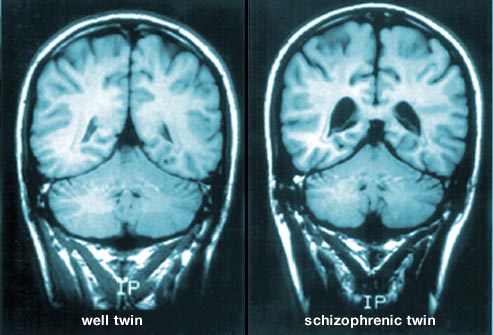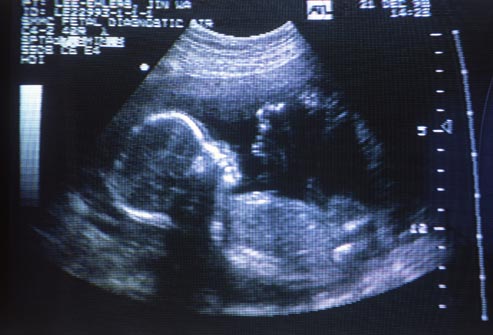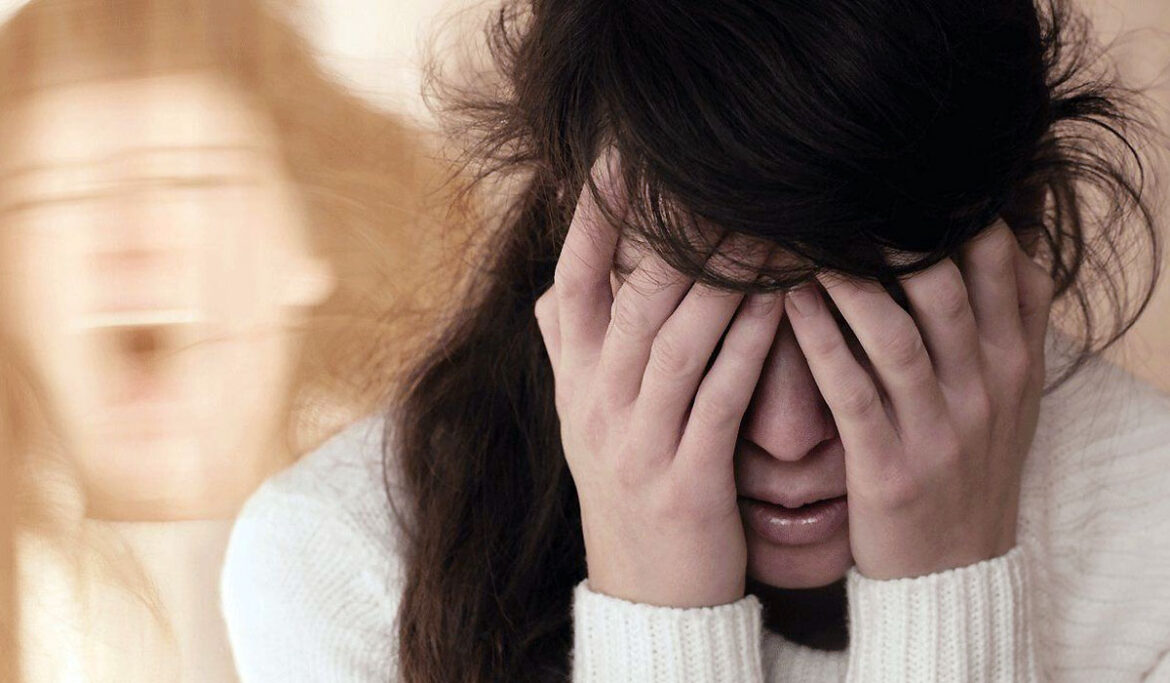What is Schizophrenia?

Schizophrenia is a chronic, disabling brain disorder. It affects the way a person behaves, thinks and sees the world. People with schizophrenia often have an altered perception of reality. It may cause people to hear voices, see imaginary sights or believe other people are controlling their thoughts. These sensations can be frightening and lead to unpredictable behavior. There is no cure till date, but treatments can usually control the most serious symptoms and live a normal life.
Schizophrenia Symptoms

Delusions: A delusion is a firmly-held idea that a person that despite clear and obvious evidence that isn’t true. Delusions of persecution that someone is against you or bizzare ideals and plots. Delusions of reference like some sign is just for you. Delusions of grandeur like believing to be Jesus Christ, incarnation of God or some other great personalities. Delusions of control like that someone is controlling your mind or stealing ideals from your pain. These are the most common conditions seen in patients.
Hallucinations: Hallucinations are very common schizophrenic symptom. Hallucinations are sound or other sensations experienced as real when they exist only in the person’s mind. While hallucinations can involve any of the five senses. The auditory hallucinations a hearing voices or some other sound are most common. The voices heard by patients are often of someone they know or they consider their own voice coming from a person. The voices are critical, vulgar or abusive. Hallucinations happens to be worse when the person is alone.
Disorganized speech: Fragmented thinking is characteristic of schizophrenia. Patients often have disorganized speech. As the people affected have trouble concentrating and maintaining a train of thought. Unrelated answers, different topics, loose associations, repetition in words and meaningless use of rhyming are the most seen problems.
Disorganized behavior: Schizophrenia disrupts goal-oriented activity. There is a decline in overall daily functioning. Unpredictable or inappropriate emotional responses are also a sign of different behavior.
Negative symptoms (absence of normal behavior)
Some symptoms, such as lack of enjoyment in everyday life and withdrawal from social activities, may mimic depression.
How Schizophrenia Affects thoughts

Patients are unable to lead normal lives. There are disruptions in thinking, generally abnormal thinking. No logical connecting thoughts. Mind seems to race from unrelated thoughts to another. Sometimes they experiences “thought blocking”. It is a feeling that thoughts are removed from their head by some other person.
How Schizophrenia Affects Behavior

Schizophrenia causes a wide range of behaviors. There are social problems where patients often tend to shy away from interaction. They are often found in a catatonic phase or have blank face. There are problems of inability to sleep or excess sleep. They often find it hard to organize homes and daily lives. Basic hygiene is also neglected by them. Repetitive behaviors like pacing is also very common. The risk of violence against others is less though behavior remains unpredictable.
Who Gets Schizophrenia?

Schizophrenia can affect anyone. Both men and women are equally susceptible. This occurs almost equally in all ethnic groups around the world. Symptoms usually begin between ages 16 and 30. The onset tends to be earlier in men than in women. It rarely begins during childhood or after the age of 45. People with the disorder in the family may have a higher risk of the illness but studies have found that 60 per cent people have no family history of the disease.
What Causes Schizophrenia?

The exact cause is not known but scientists suspect genes and environment both play a role. Inside the brain, levels of the chemical messengers of the brain, dopamine and glutamate can be out of balance. Brain structures may be abnormal too. Activity levels can also be higher or lower than normal in some areas of the schizophrenic brain.
Diagnosing Schizophrenia

There are no lab tests to detect schizophrenia. A diagnosis is usually based on history and symptoms. Tests may be ordered to rule out the other medical causes of symptoms. In teenagers, a combination of family history and certain behaviors can help predict the onset of schizophrenia. These behaviors include withdrawing from social groups and expressing unusual suspicions.
[Get details on Neuro and Spine Surgery in India]
Medications for Schizophrenia

Prescription drugs can reduce symptoms such as abnormal thinking, hallucinations, and delusions. It is thought they work by regulating certain brain chemicals and receptors that influence thinking, perception, and behavior. Some people have troubling side effects, including tremors and weight gain. Schizophrenia drugs can also interact with other medications or supplements. In most cases, long term medication is essential to manage schizophrenia.
Psychological Therapies

Counseling can help people cope with their problem behaviors and thoughts. Sessions can help to improve how they relate to others. In cognitive behavioral therapy (CBT), people learn to test the reality of their thoughts and better manage symptoms. Other forms of therapy are designed aim to improve self-care, communication and relationship skills. These strategies are not meant to replace medication, but can help people already stable on medication manage everyday challenges.
Rehabilitation

Schizophrenic Rehabilitation include job training, money management counseling, and guidance in using public transportation or shopping for groceries. The goal is to help people with schizophrenia stay employed and maintain as much independence as possible, Rehab programs are particularly effective when combined with psychotherapy.
Relapse Prevention

People with schizophrenia sometimes quit their medications because of side effects or a poor understanding of their illness. This raises the risk of serious symptoms returning and triggering a full psychotic episode, Regular psychological therapy can help people stay on medication and avoid a relapse or the need for hospitalization.
Schizophrenia and the Workplace

People with schizophrenia often have trouble finding or keeping a job. This is partially because the disease impairs normal thinking, concentration and communication. But is also stems from the fact that symptoms begin in young adulthood, which may interfere with education and job training. Vocational training can help people develop practical job skills.
Schizophrenia and Relationships

Relationships can be a challenge for people with schizophrenia. Their unusual thoughts and behaviors may alienate friends, co-workers, and family members. Sticking to a treatment plan can reduce social isolation. One form of therapy focuses on forming and nurturing interpersonal relationships. In addition, support groups or family therapy can help loved ones better understand the illness.
Schizophrenia and Substance Abuse

People with schizophrenia are much more likely than the general population to abuse drugs or alcohol. Some drugs, including, marijuana and cocaine, can make symptoms worse. Drug abuse can also interfere with treatments for schizophrenia. Substance and drug abuse programs can help patients with various therapies.
Schizophrenia and Pregnancy

Most drugs used to treat schizophrenia have no known risk for increasing the risk of birth defects, but decisions about medication treatment for schizophrenia during pregnancy should be discussed with your doctor.
Tips for Family Members

Schizophrenia can be confused with other mental health disorders. A careful evaluation is the key. It is very difficult to convince someone with schizophrenia to get help. Treatment often begins when psychotic episode results in a hospital stay. Once the person is stabilized, family member can help prevent a relapse by encouraging the person to stay on medication, tagging along on follow-up appointments and being supportive and respectful.
Find affordable Neuro and Spine Surgery Treatment Packages at MediConnectIndia
Also read:
Hydrocephalus : A Rare Giant Head Syndrome
